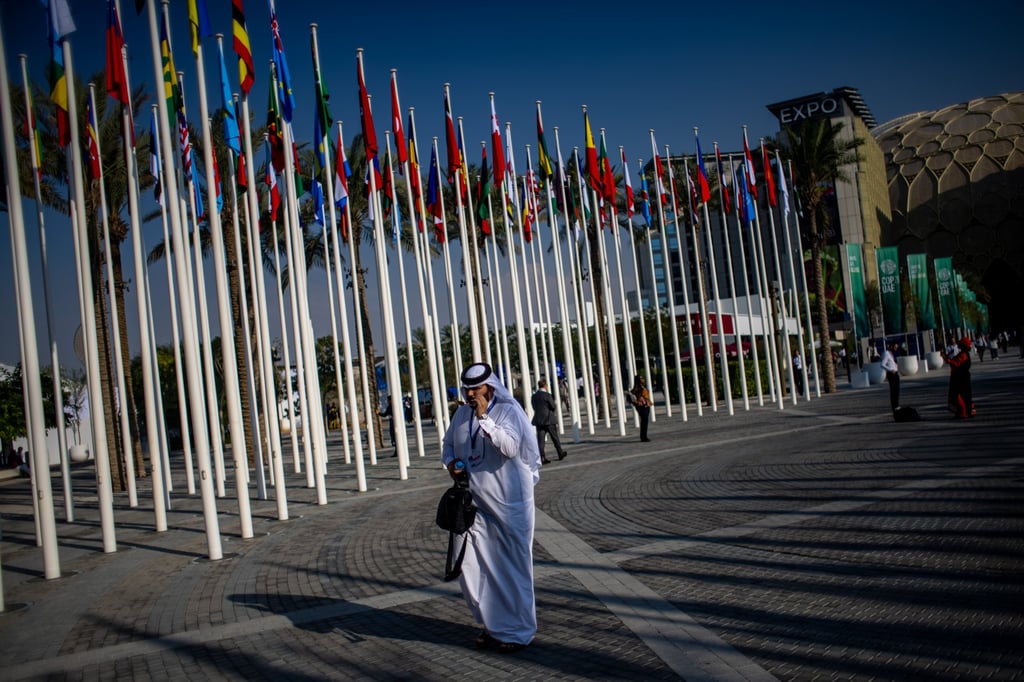Bussiness
UAE business hub seeks to build on ‘very, very strong’ China ties

From start-ups to universities, a Dubai government-backed developer has increased efforts to lure Chinese businesses to set up shop at one of the city’s newest business hubs, as it seeks to ride on China’s growing economic momentum with the Middle East.
Chinese tenants are expected to be one of the biggest groups of foreign businesses taking up occupancy at Expo City Dubai, with the venue set to complement the nearby Al Maktoum International Airport and the Dubai Exhibition Centre to form the a one-stop hub that combines logistics, international conventions, business and residential facilities in the most populous city in the United Arab Emirates (UAE)
“Within the next year or so, I suspect [the number of] Chinese companies would grow anywhere to 200 plus to have set up their trade licence and operating licence out of Expo City and beyond, and I say this as a very conservative estimate … some of our business partners are estimating over 400,” Manal al Bayat, chief engagement officer at Expo City Dubai, told the Post.
Chinese artificial intelligence start-up Terminus, electric vehicle charging solutions company Shahin and state-owned logistics company Sinotrans are among the 40 firms that have already set up in the district.
The developer is also in discussions with two universities in China, as well as Chinese law firms, to take up residence on the site, which spans 4.38 square kilometres (1.7 square miles) – equivalent to more than 600 football fields.
China has been the primary foreign investor in the Middle East since 2016, and while it initially focused on the energy sector, firms have expanded their footprints into infrastructure, smart cities, innovation hubs and 5G mobile networks.
They also moved beyond the larger economies in the region, including Saudi Arabia and the UAE, and have also sought opportunities in Qatar, Iran and Israel.
Last year, the UAE received more than US$1.3 billion in Chinese investment, representing a 16 per cent year on year increase, according to the Chinese embassy in the UAE.
According to a report from accounting firm PwC in 2022, there were also 6,000 Chinese companies operating in the UAE.

Chinese investment, however, only took up 5 per cent of overall foreign direct investment into the UAE up to the end of 2020, according to Abu Dhabi Investment Office.
The United Kingdom, India, the United States, France and Saudi Arabia also top investors, according to the 2023 World Investment Report from the United Nations Conference on Trade and Development.
Saudi Arabia has also become a highly competitive option for Chinese investment, which increased 11 times to US$16.8 billion in 2023.
Located towards the southern end of Dubai, the Expo City Dubai aimed to sell to potential Chinese businesses to set up their regional headquarters.
The site was transformed into a business hub after hosting the Expo 2020 Dubai and the United Nations Climate Change Conference, more commonly known as Cop28.
The developer expects 60 per cent of its tenants to be foreign, with Chinese and European businesses the top international investors.
I think that the biggest challenge is primarily just that uncertainty and needing a bit of hand holding in the beginning
International business tenants at Dubai City Expo already include ports operator DP World, Emirates airline and Germany’s Siemens Energy and Siemens Industrial.
Bayat said the developer was actively reaching out to Chinese companies and institutions, and had lined up dozens of talks with Chinese counterparts during the Dubai Business Forum China in Beijing in August.
“If I just look at the UAE and China relationship, obviously it’s a very, very strong relationship … we are definitely seeing strong interests from Chinese partners, ” said Bayat.
“The challenges that we’re hearing [from them] is uncertainty. Right when you enter a new market, you don’t know what that market is like.
“We are working with the UAE embassy in China and the Chinese embassy, consulates, as well as the chamber and their offices in UAE, just to add additional layers of comfort to provide them with all the information they need … so I think that the biggest challenge is primarily just that uncertainty and needing a bit of hand holding in the beginning.”




![YGOrganization | [Master Duel] New Forbidden & Limited List Announced YGOrganization | [Master Duel] New Forbidden & Limited List Announced](https://cdn.ygorganization.com/2024/12/TenpaiDragonChundra-MADU-EN-VG-artwork.png)




